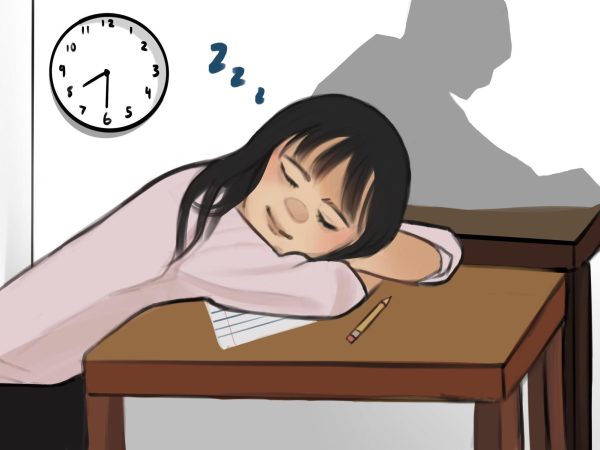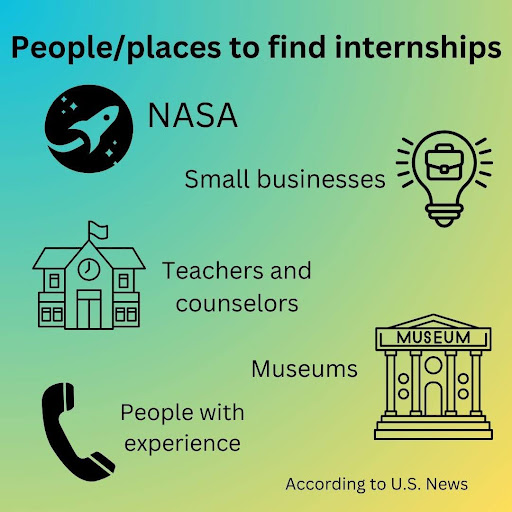Weighing in on common mental disorders
Having a positive attitude, engaging in activities and working hard on a daily basis are just a few of the factors that nourish a healthy lifestyle. Some, however, find it exceedingly difficult to do these things. They may be battling a mental illness.
Some are born with a mental illness, but others develop an illness over time. According to the National Alliance on Mental Illness, conditions of an illness impact a person’s thoughts, emotions and/or mood. They also may affect his or her ability to relate to others and to function regularly.
Sophomore Meriem Abou-Ghazaleh is very outspoken on mental health, especially since she has been through treatments herself.
“I’ve dealt with depression for six years and with anxiety for the last year,” Abou-Ghazaleh said. “It’s really difficult to handle because anxiety is always thinking and being afraid of the future, while depression is thinking of the past. I’m stuck in the middle.”
Often times, the media will alter one’s outlook on life and the way he or she is portrayed.
“Mental illnesses have become so trendy, and people just label themselves what they see or hear without getting any professional help,” Abou-Ghazaleh said. “It’s been so romanticized, but it really shouldn’t be.”
School psychologist Kristina Crawford guides students who are struggling with a mental illness.
“Most students come to me when they’re stressed about school because pressure from parents and friends make them feel like they need to be more successful,” Crawford said.
The severity of a mental disorder ranges from mild to extreme, and those affected by the same illnesses can different experiences. This can take a toll on one’s ability to endure effects.
“It’s not usually just one factor that causes these problems, and everyone has different tolerances,” Crawford said. “Two people may experience the same event, and it won’t affect one as much as the other because person A can manage it, whereas person B may have a really hard time processing everything.”
Many teenagers deal with depression or anxiety, but pressure from one issue tends to exasperate the bigger issues.
Psychology and peer helping teacher Katie Van Nuys assigned her peer helping students a task to educate the school on mental health during the month of December. In groups, students researched and created presentations about different mental health disorders.
“My group was given eating disorders as the issue to explore, and we’ve already started outlining our presentations,” senior and peer helping student Casey Baker said. “I think the goal of this project is to spread awareness and to make students comfortable in knowing that the school is a safe place with many resources because often times, kids will bottle up stress and anxiety.”
Peer helping students are also constructing a coffee house to go along with their projects.
“The idea of the coffee house is to invite the counselors during Charger Time to hang out and make students more familiar with who they can talk to about anything they feel like,” Baker said.
Counselor Deborah Wolin is looking forward to the coffee house because she understands how school can overwhelm many students.
“Students can easily get into a cycle of missing school because they’re not motivated enough,” Wolin said.
What too many students don’t realize is that there are people here to help and that teachers are very understanding. The emotional well-being of students is the most important factor for the staff.
“It’s best to communicate with all the faculty so they can provide extensions and be flexible,” Wolin said.
Several students shy away from joining clubs they’re initially enthusiastic about because they feel like they won’t fit in. Such students are then pressured to join clubs that don’t spark any appeal. When they force themselves to do so, students risk losing opportunities that can be truly satisfying.
In general, instead of partaking in activities simply because they look good for applications and to others, students should make the effort to discover their interests and be devoted to things they’re happy doing. This creates positive momentum for a student socially, and in turn, allows him or her to have something to look forward to each day.
“Once you’re more open, you will do what you love, explore what you love, and be in the moment,” Wolin said. “If you actually try to enjoy what you’re doing while pursuing your passion, the rest will take care of itself.”
Your donation will support the student journalists of Chantilly High School. Your contribution will allow us to cover our printing and annual website hosting costs.






